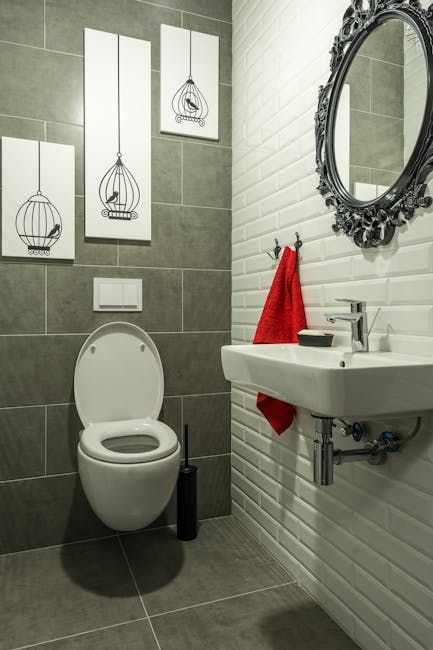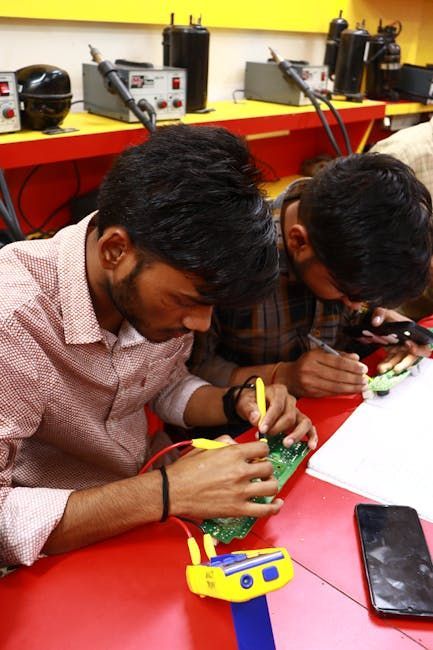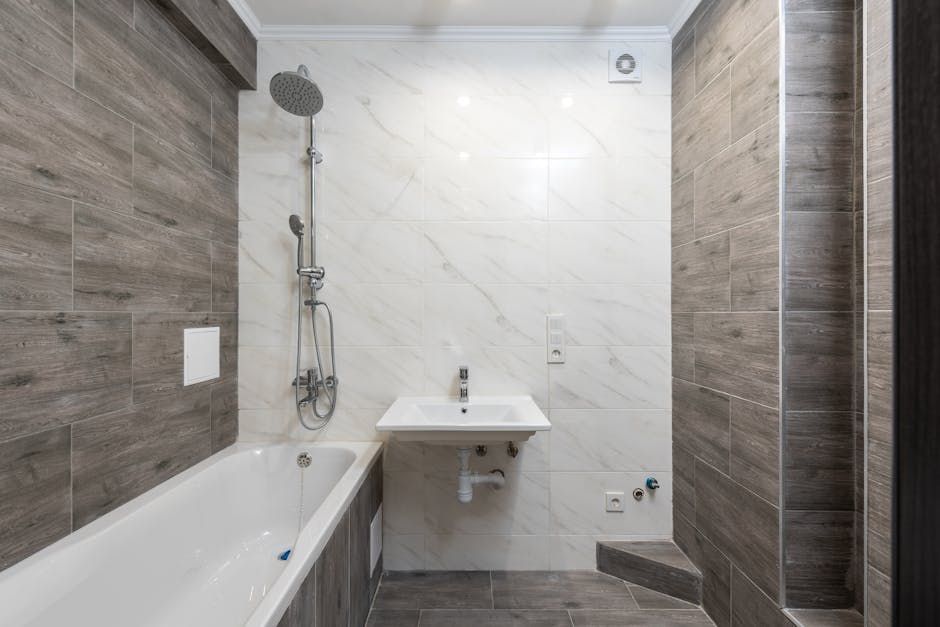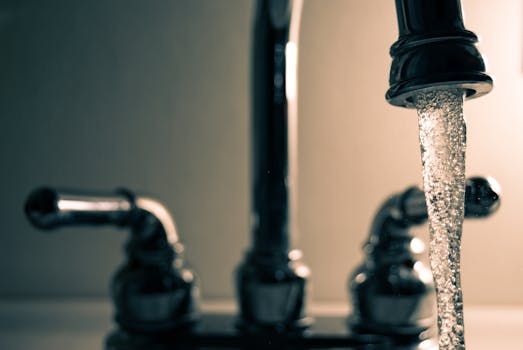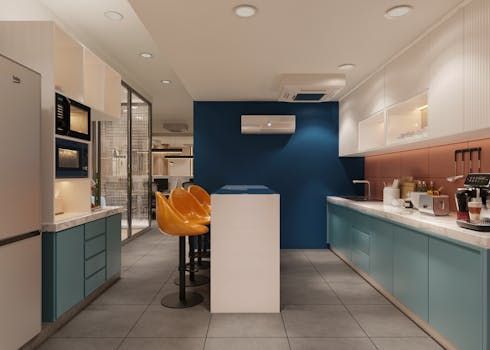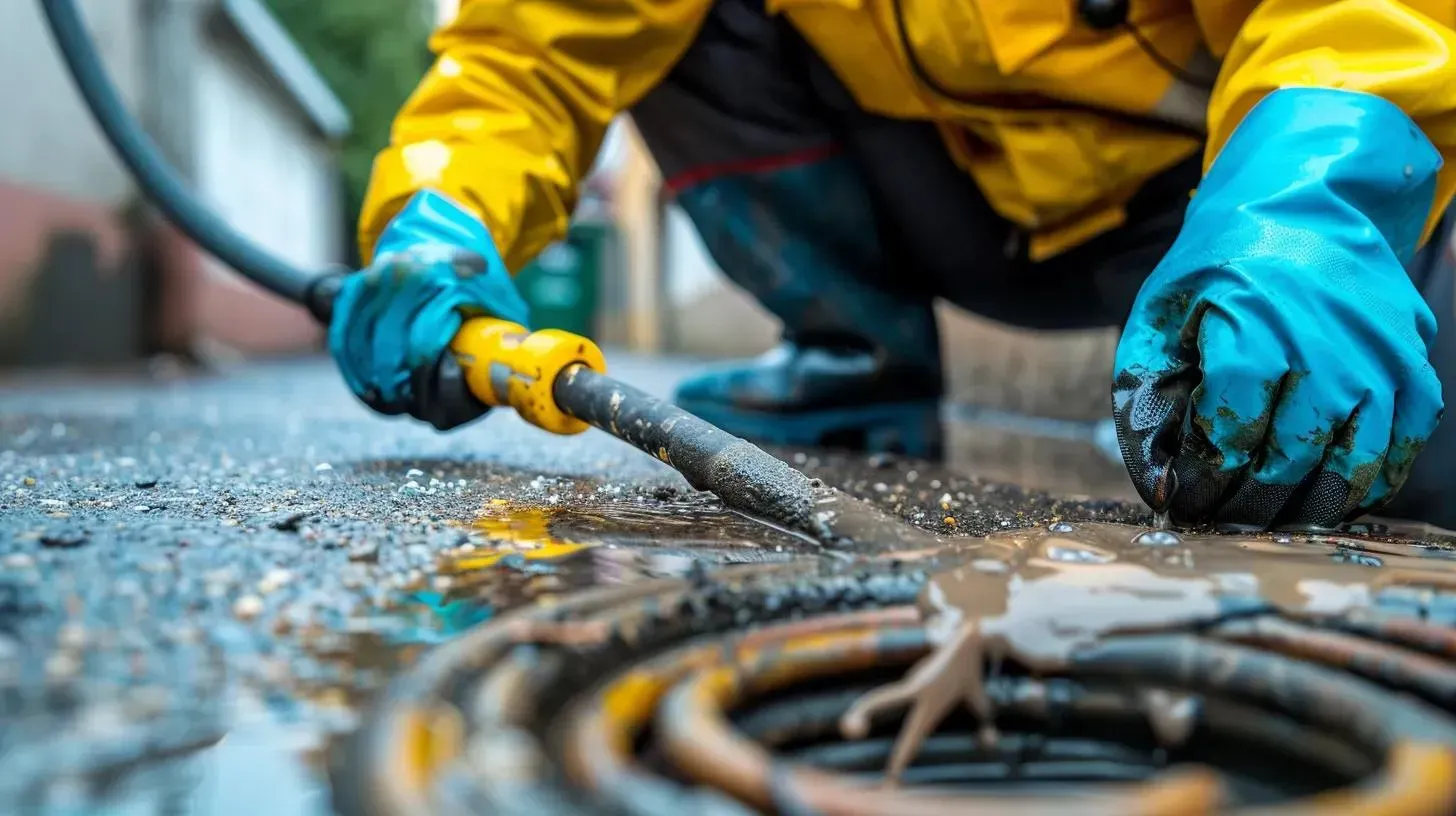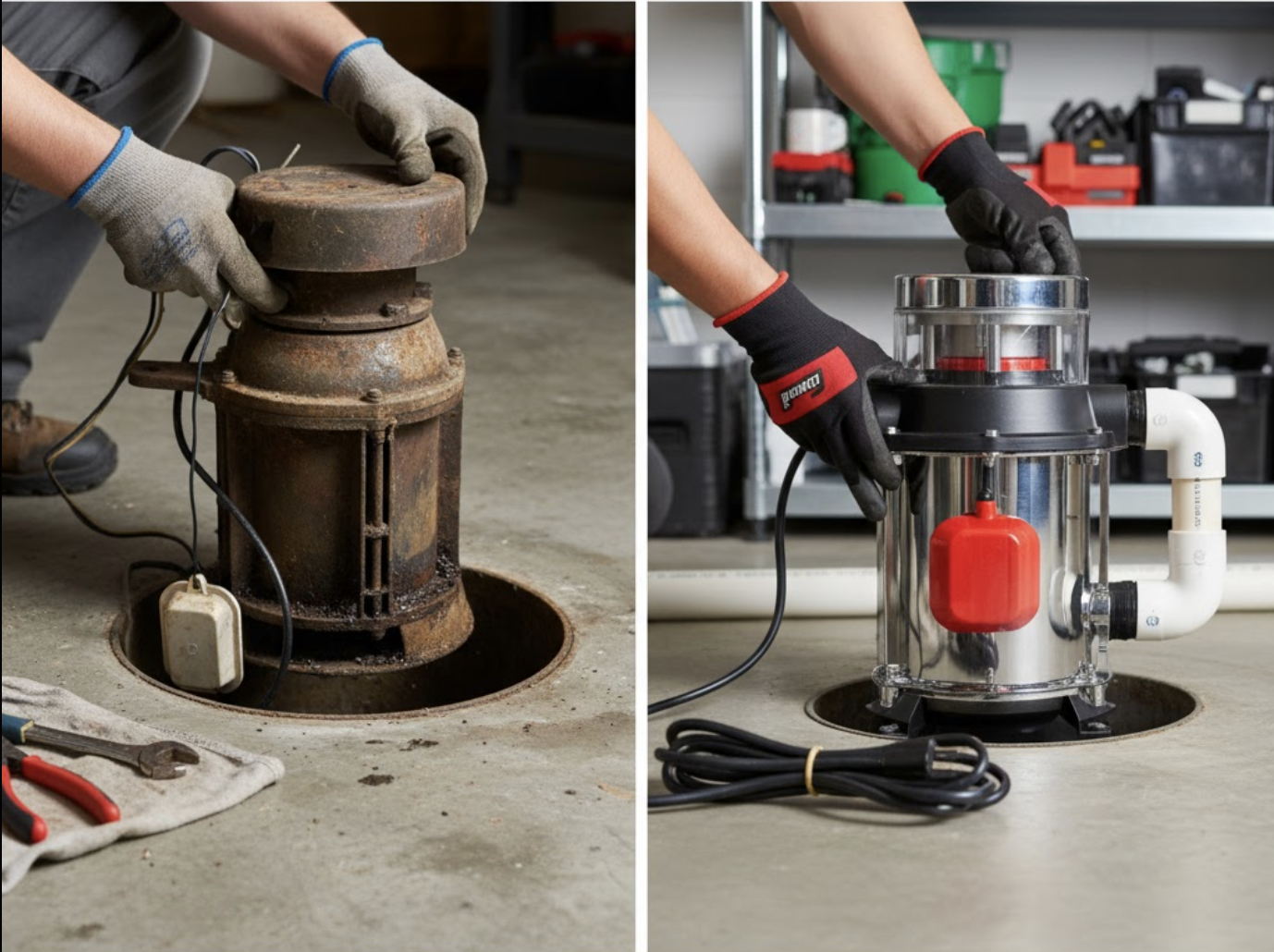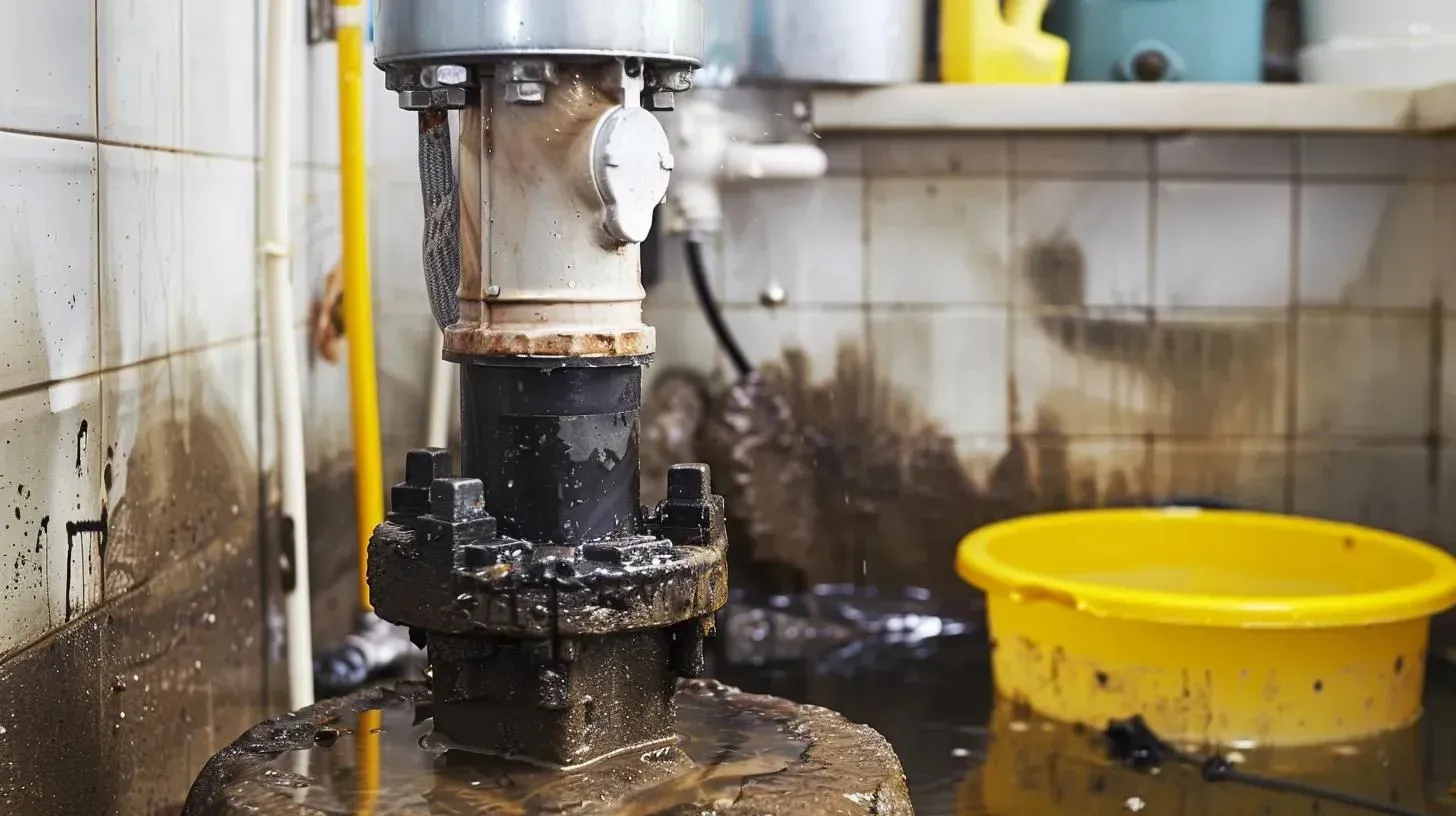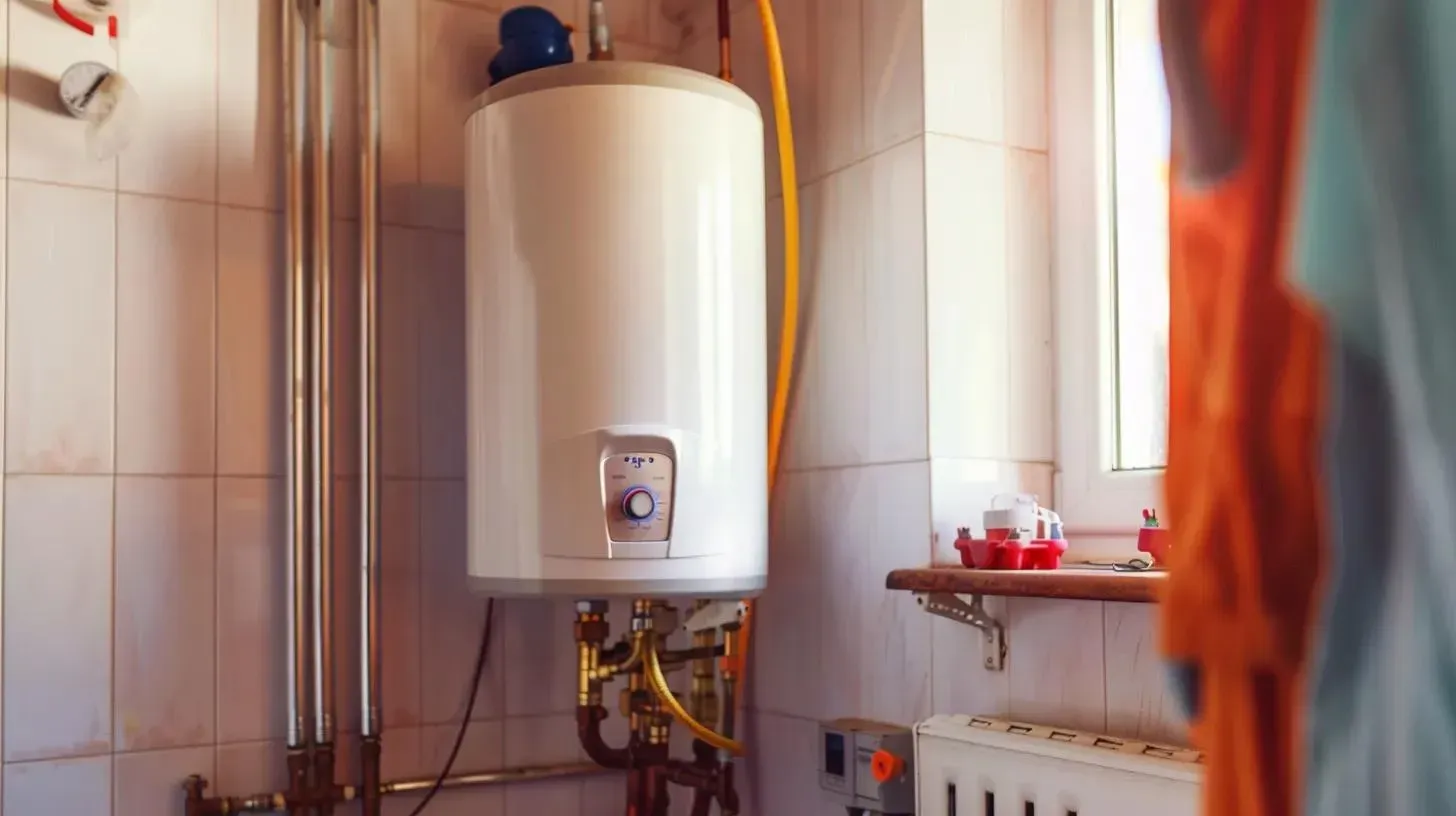Homeowner's Guide to Denver Residential Leak Repair
Why Denver Residential Leak Repair Demands Immediate Attention
Denver residential leak repair is a critical service that protects your home from water damage, foundation issues, and skyrocketing utility bills. A hidden water leak can quietly cause serious damage to your home long before you ever see the signs, including foundation damage, mold, and increased water bills.
When you need Denver residential leak repair services:
- Emergency situations: Burst pipes, slab leaks, or visible water damage
- Detection services: Hidden leaks behind walls or under foundations
- Repair methods: Trenchless repair, pipe replacement, or spot fixes
- Cost range: $150-$500 for detection, $500-$7,000 for repairs
- Insurance help: Documentation and claims assistance
Denver's unique climate creates perfect conditions for plumbing disasters. The city's freeze-thaw cycles cause pipes to expand and contract, potentially resulting in leaks. Temperature changes put extra strain on your plumbing system, while high water pressure can damage aging pipes.
The stakes are high. A slow drip can waste as much as 150 gallons of water each day, or 4,500 gallons per month, adding significantly to your water bill. Even worse, ignoring small leaks can lead to bigger problems such as rusty deposits, damaged flooring, ceiling damage, and mold - all of which cost far more to repair than the original leak.
I'm Mike Martinez AHP, owner of Accountable Home Plumbing, and I've spent years helping Denver homeowners protect their properties through expert Denver residential leak repair services. My team and I understand how Denver's climate challenges your plumbing system, and we're here to provide the fast, reliable solutions you need.
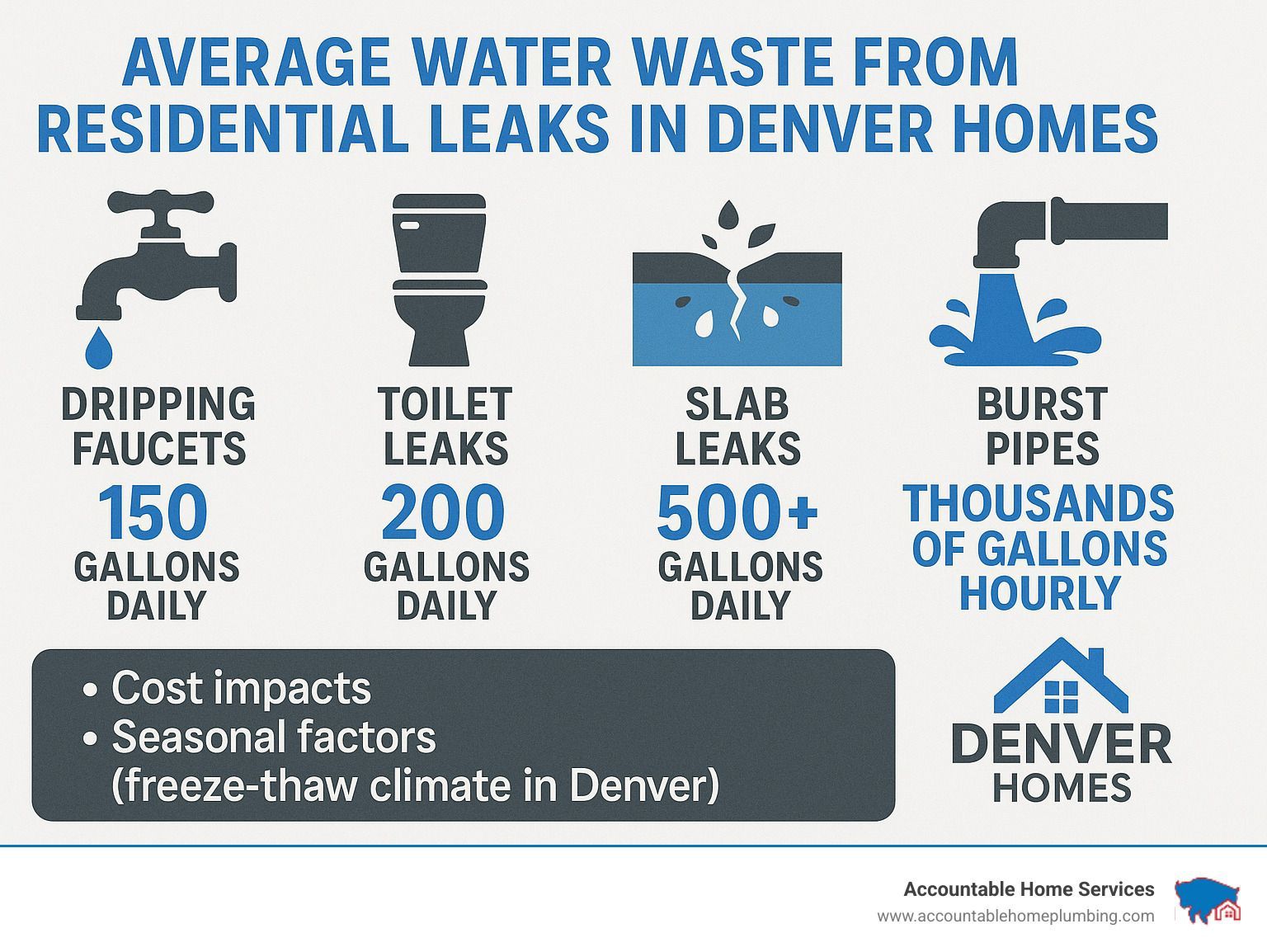
Why This Guide Matters
This comprehensive guide addresses the unique challenges Denver homeowners face with residential leak repair. Our Mile High City's climate creates specific risks that homeowners in other regions don't experience. The combination of intense UV exposure, dramatic temperature swings, and soil conditions that shift with moisture levels makes leak prevention and early detection crucial.
We've designed this guide to help you understand the scope of potential leak issues, recognize warning signs early, and know when to call for professional help. With Denver's high water costs and the potential for extensive property damage, quick action on leak detection and repair can save you thousands of dollars.
Causes & Warning Signs of Residential Leaks in Denver
Living in Denver means dealing with some unique plumbing challenges that homeowners in warmer climates never face. After years of providing Denver residential leak repair services, I've seen how our Mile High environment creates the perfect storm for plumbing problems.
The biggest culprit? Those brutal freeze-thaw cycles that hit us every winter. When water freezes, it expands with incredible force - enough to split even the strongest pipes. I've seen pipes burst in heated homes simply because they ran through an uninsulated crawl space or along an exterior wall that got too cold.
Our water itself creates problems too. Denver's high mineral content acts like sandpaper on your pipes over time. Those minerals build up inside copper and galvanized steel pipes, slowly eating away at the metal. What starts as a tiny pinhole can quickly become a major leak that floods your basement.
Then there's the high water pressure issue. Many Denver homes receive water at pressures well above the safe 60-80 PSI range. All that extra pressure constantly stresses your pipes and joints, causing them to fail years before they should.
Slab leaks are another Denver specialty. Our expansive clay soil loves to shift and move as moisture levels change throughout the seasons. When the soil moves, it puts tremendous pressure on the pipes running beneath your concrete foundation. These leaks are particularly sneaky because they can run for months before you notice anything wrong.
Don't forget about simple age-related failure either. If your home was built before 1980, those original pipes might be living on borrowed time. Copper pipes typically last 50-70 years, but galvanized steel often starts failing after just 20-30 years.
Watch for these warning signs that scream "call for help now": unexplained jumps in your water bill, the sound of running water when everything's turned off, musty smells in rooms that should be dry, sudden drops in water pressure, warm spots on your floors, or new cracks appearing in walls or foundations.
Inside-the-Walls Red Flags
The trickiest leaks hide behind your walls, quietly causing damage while you're completely unaware. These sneaky problems can cost you thousands if you don't catch them early.
Wet spots or discoloration on walls and ceilings are your first warning signs. Sometimes it starts as just a small yellow or brown stain that you might mistake for normal wear. But if that spot keeps growing or new ones appear, you've got water where it shouldn't be.
Peeling paint or wallpaper tells a similar story. Water loosens the adhesive, causing materials to bubble, warp, or simply fall off the wall. I've walked into homes where entire sections of drywall were soft to the touch because water had been soaking in for weeks.
Mold or mildew growth away from bathrooms is a dead giveaway. If you're seeing black spots or smelling that unmistakable musty odor in your living room or bedroom, water is getting in somewhere it shouldn't be.
Trust your nose and ears too. Persistent dampness in certain rooms or the sound of dripping inside walls means water is flowing where you can't see it. Don't ignore these sensory clues - they're often your earliest warning system.
Yard & Foundation Clues
Sometimes the most serious leaks announce themselves outside your home. These external signs often point to underground problems that need immediate professional attention.
Foundation cracks or basement floor cracks can indicate major water movement beneath your home. When underground leaks wash away soil, your foundation loses support and starts to shift. I've seen cases where a simple slab leak turned into a $20,000 foundation repair because it went undetected too long.
Doors and windows that suddenly stick or won't close properly often signal foundation movement caused by water issues. Your home's frame is incredibly sensitive to even small shifts in the foundation.
Outside, look for soggy areas in your yard that never seem to dry out, even during our dry spells. Unusually green or lush patches of grass can indicate an underground water line feeding your lawn 24/7. Sinkholes or depressions that appear in your landscaping are red flags that soil is being washed away by hidden leaks.
Water seeping up through concrete or pavement around your home means significant underground water movement. Don't wait to investigate these signs - underground leaks only get worse with time, and the damage they cause spreads quickly through your property.
Leak Detection, Immediate Actions & Prevention
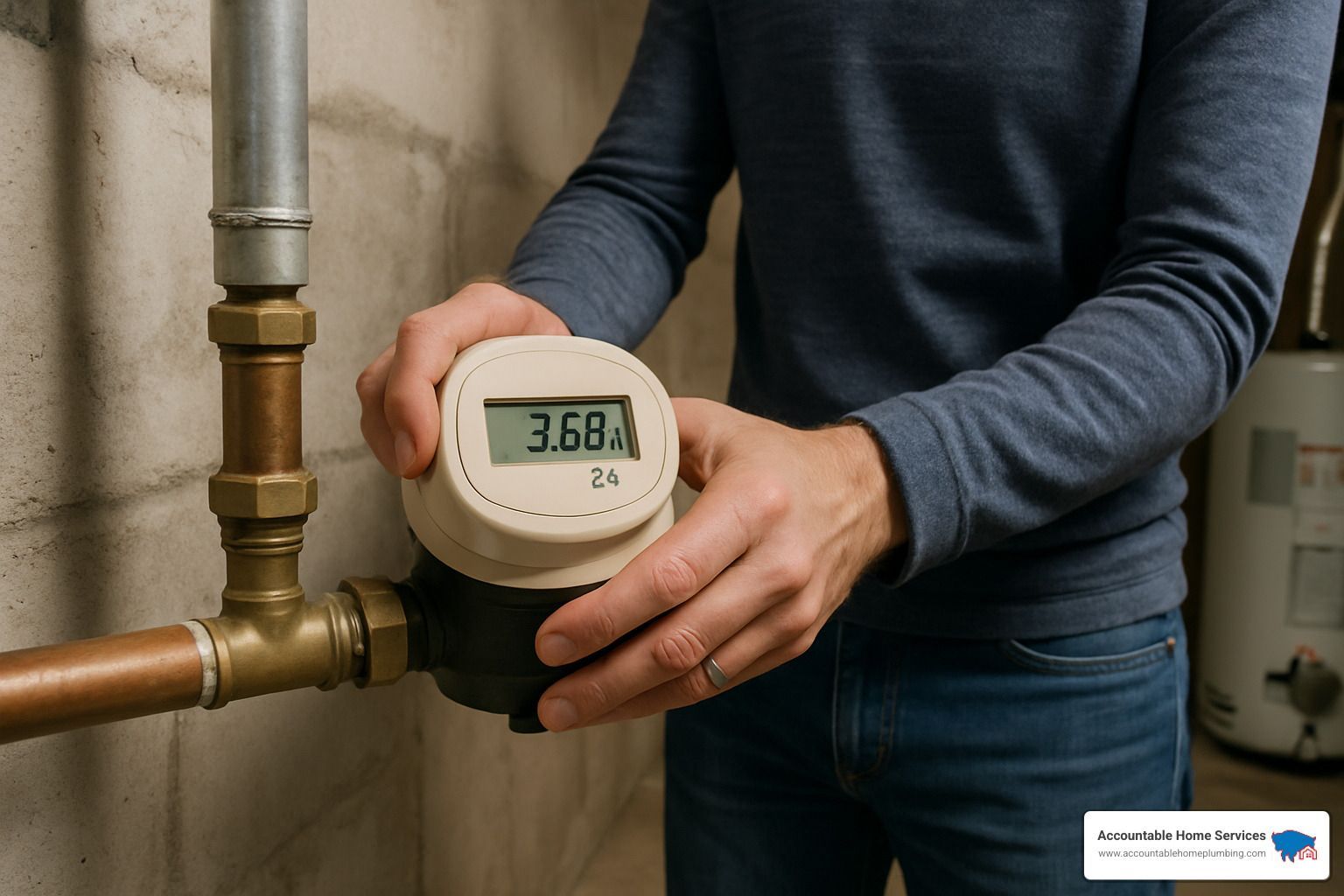
Finding leaks early can save your home from thousands of dollars in damage. I've seen too many Denver homeowners find hidden leaks only after water has been silently destroying their foundation for months. The good news? Today's Denver residential leak repair technology lets us find problems with pinpoint accuracy, often without tearing up your beautiful yard or walls.
Modern leak detection has come a long way from the old "dig and hope" approach. We now use acoustic sensors that can actually hear water escaping through pipes, even when they're buried under concrete slabs. These sensitive listening devices pick up sounds your ears would never catch.
Thermal imaging cameras reveal the invisible story your pipes are telling. Hot water leaks show up as warm spots on our infrared screens, while cold water leaks appear as cooler areas. It's like having X-ray vision for your plumbing system.
When we need to see exactly what's happening inside your pipes, we send in tiny video cameras that travel through your plumbing. These little explorers show us not just where leaks are happening, but the overall condition of your pipes. For underground mysteries, we use specialized moisture probes that detect wet soil without destroying your landscaping.
Water meter test
Acoustic sensors
Suspected hidden leaks
Visual inspection
Thermal imaging
Behind walls/slabs
Toilet dye test
Video inspection
Inside pipe assessment
Appliance checks
Soil probes
Underground leaks
Emergency situations don't wait for business hours. When you're dealing with burst pipes or major water damage, our emergency plumbers are available 24/7 throughout the Denver metro area. We understand that plumbing disasters have terrible timing.
How to Perform a Quick Home Leak Check
You don't need professional equipment to catch many leaks early. These simple tests can reveal problems before they become disasters.
The water meter sweep test is your home's truth detector. Turn off every faucet, appliance, and toilet in your house. Find your water meter (usually near the street) and watch that little sweep hand. If it moves even slightly during a 30-minute period, water is escaping somewhere in your system.
The toilet dye test reveals one of the most common household leaks. Drop a few drops of food coloring into your toilet tank, then wait 15 minutes without flushing. If color appears in the bowl, your toilet is quietly wasting hundreds of gallons every day. It's like having a faucet running 24/7.
Walk around your home and check the usual suspects. Look around your water heater, washing machine, dishwasher, and under every sink. Fresh water stains, rust spots, or white mineral deposits are your plumbing system's way of crying for help.
Sudden pressure drops often signal significant leaks. If your shower suddenly feels weak or your kitchen faucet barely trickles, water is probably escaping somewhere it shouldn't be.
Fast DIY Denver Residential Leak Repair Precautions
When you find a leak, your first few minutes of action can prevent thousands of dollars in additional damage. Turn off the water supply immediately - either to the specific area or your entire house if you're not sure where the shutoff valve is located.
Contain the leak using every bucket, towel, and tarp you can find. Water moves fast and finds every crack and crevice. Take photos of everything before you start cleaning up. Your insurance company will thank you later, and these pictures help us understand what happened.
Remove standing water as quickly as possible. Water starts encouraging mold growth within 24-48 hours, especially in Denver's dry climate where any moisture becomes a breeding ground.
Call professionals for anything beyond basic fixture repairs. Never attempt repairs on gas lines or main water lines - these require licensed experts and proper permits to keep your family safe.
Denver residents have a valuable resource most people don't know about. You can order a free lead test from Denver Water, especially important if you live in an older home where plumbing repairs might disturb lead-containing materials.
Denver Residential Leak Repair: Professional Methods, Costs & Insurance
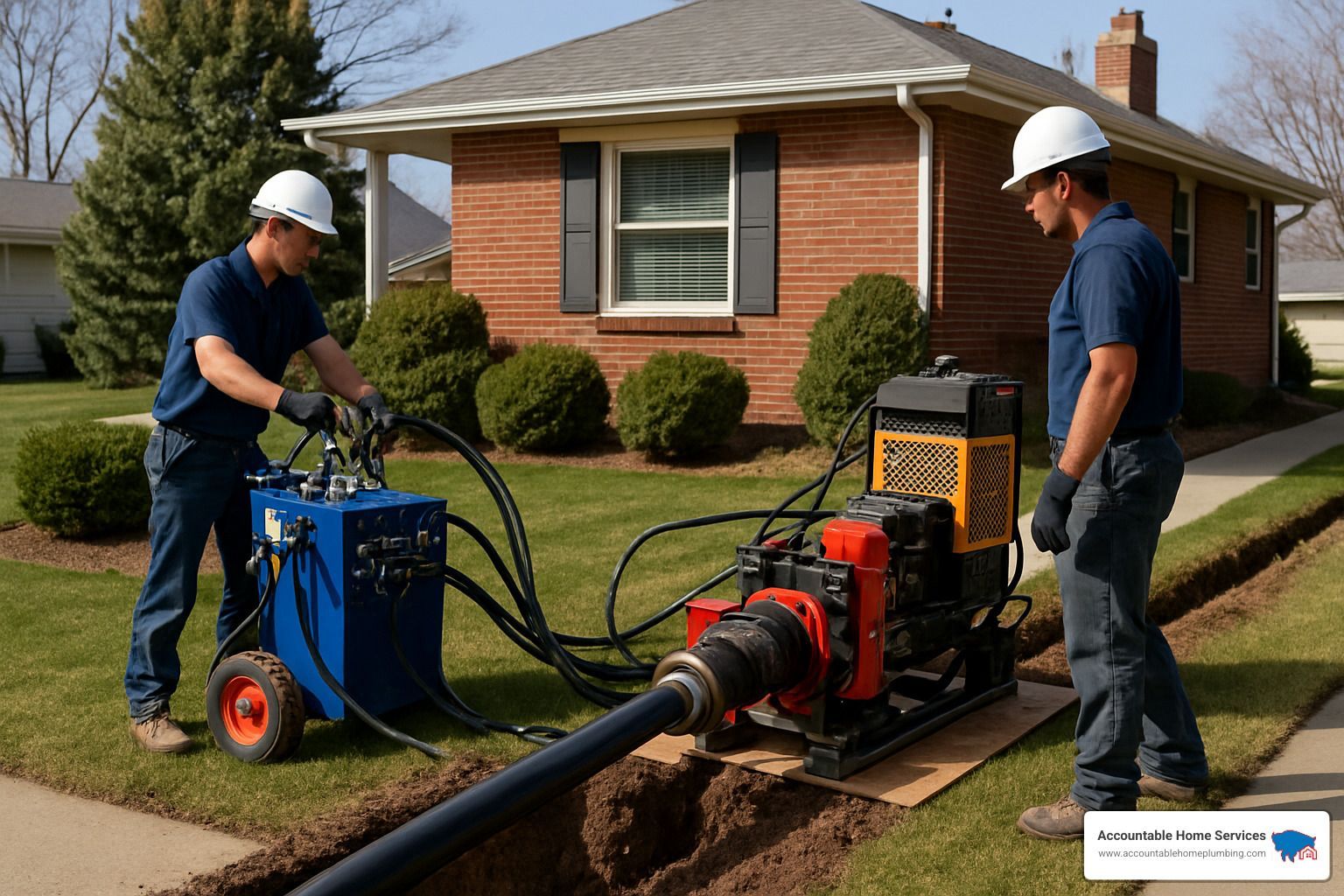
When you need professional Denver residential leak repair, you'll be amazed at how much the industry has changed. Gone are the days when fixing a leak meant tearing up your entire yard or demolishing walls. Today's repair methods are like something out of a science fiction movie - precise, minimally invasive, and incredibly effective.
Trenchless pipe lining has revolutionized how we handle underground leaks. We insert a special resin-lined sleeve into your existing pipe and cure it in place, essentially creating a brand new pipe inside the old one. It's perfect for those stubborn slab leaks that used to require jackhammering through your beautiful floors.
For pipes that are beyond saving, pipe bursting technology lets us replace them without the mess. We use hydraulic equipment to break apart the old pipe while simultaneously pulling a new one into place. Your landscaping stays intact, and your stress levels stay manageable.
Sometimes a leak only affects a small section of pipe. That's where spot repairs shine - we can access and fix just the problem area without replacing entire pipe runs. It's cost-effective and gets you back to normal quickly.
Video-guided repairs take the guesswork out of the equation. We use tiny cameras to see exactly what's happening inside your pipes, locate problems with pinpoint accuracy, and verify that our repairs are rock-solid.
Here's what you can expect to invest in professional leak repair: Detection services typically run $150-$500, depending on how tricky your leak is to find. Minor repairs for easily accessible leaks usually cost $200-$800. Slab leak repairs using our trenchless methods range from $1,500-$4,000. For main line replacement, you're looking at $3,000-$7,000, depending on length and access challenges.
Emergency calls may include premium charges for after-hours service, but when water is gushing through your ceiling at midnight, it's worth every penny. For detailed information about our comprehensive services, check out our Water Leak Repair Denver page. We also partner with trusted Residential Water Leak Detection Companies to provide complete solutions.
Pro-Level Denver Residential Leak Repair Technologies
Our toolkit would make any tech enthusiast jealous. Acoustic pinpointing equipment uses ground microphones and digital correlation technology to locate leaks within inches, even through thick concrete slabs. It's like having superhuman hearing that can detect the faintest whisper of escaping water.
Pressure testing ensures our repairs will last for decades, not just months. After we complete any repair, we verify system integrity using precise pressure tests. Think of it as a stress test for your plumbing - if it passes our rigorous standards, you can trust it won't fail you later.
For larger diameter pipes, robotic crawlers provide detailed interior assessments and can even perform some repairs remotely. These little mechanical marvels crawl through your pipes, sending back high-definition video that shows us exactly what's happening inside.
Trenchless sewer repair handles those nasty sewer line leaks that can affect your property. We can repair or replace entire sewer lines without destroying your driveway, sidewalk, or prize-winning rose garden.
Working With Insurers & the City
Dealing with insurance claims doesn't have to be a nightmare if you know what to do. Take detailed photos of all damage before you start any cleanup - these pictures are worth their weight in gold when dealing with adjusters. Keep every receipt for emergency repairs, temporary lodging, or damage mitigation. Document the timeline of when you finded the leak and how quickly you responded.
Understanding your policy's coverage limits for water damage can save you from unpleasant surprises. Some policies cover sudden, accidental leaks but not gradual damage that develops over time.
Here's a money-saving tip many Denver homeowners don't know about: Denver Water offers bill adjustments for qualifying leaks. If you've had a significant leak on your side of the meter and you repair it promptly, you may be eligible for a credit on your water bill. Submit a Leak Adjustment Request Form after repairs are completed - most residential leaks qualify if you act quickly.
Major pipe replacements may require city permits, but don't worry about the paperwork headache. We handle all permit applications and coordinate inspections to ensure everything meets Denver's building codes. It's just one less thing for you to stress about during an already challenging situation.
Frequently Asked Questions about Denver Residential Leak Repair
What's the difference between a minor leak and a burst pipe?
The difference between a minor leak and a burst pipe is like comparing a slow tire leak to a blowout on the highway. Both need attention, but the urgency is completely different.
Minor leaks are sneaky troublemakers that develop gradually over time. You might notice your water bill creeping up over several months, or spot occasional damp areas that seem to come and go. Water pressure might slowly decrease, and you could find minor mold or mildew appearing in unexpected places. These gradual signs give you time to investigate and plan your repair approach.
Burst pipes, on the other hand, announce themselves dramatically. You'll hear loud rushing water, banging, or even cracking sounds coming from inside your walls. Water pressure might disappear entirely, or you could see water gushing from unexpected places. This is a sudden failure that demands immediate action - there's no time to think it over.
The shut-off urgency makes all the difference. With minor leaks, you can take time to locate the main shut-off valve and call for professional help during normal hours. With burst pipes, every second counts. You need to stop the water flow immediately to prevent thousands of dollars in damage.
How does Denver's climate make leaks more likely?
Living in Denver means dealing with weather that can't make up its mind - and unfortunately, your pipes feel every bit of that indecision.
Our freeze expansion cycles are the biggest culprit. When temperatures swing from below freezing to 60 degrees in a matter of hours (which happens more often than we'd like), water inside pipes expands and contracts repeatedly. Think of it like bending a paperclip back and forth - eventually, something's going to give.
Denver's soil shift creates another unique challenge. Our expansive clay soil acts like a sponge, swelling when it gets wet and shrinking when it dries out. Underground pipes get pushed and pulled as the ground moves beneath them, stressing joints and connections until they fail.
Then there's our intense UV exposure on exposed lines. At our altitude, the sun's rays are particularly harsh on any outdoor plumbing components. Hose bibs, outdoor fixtures, and any exposed piping age faster here than they would at sea level.
The combination of low humidity, high mineral content in our water, and dramatic temperature swings creates a perfect storm for plumbing problems. It's not that Denver has bad water or terrible weather - it's just that our unique environment puts extra stress on plumbing systems.
What does professional leak detection cost in the Denver metro?
When it comes to Denver residential leak repair costs, I always tell homeowners to think of detection as an investment that can save them thousands in unnecessary damage.
Detection services typically run between $150-$500, depending on what we're dealing with. Basic detection for accessible areas using standard listening equipment usually falls in the $150-$250 range. When we need to break out the big guns - thermal imaging for slab leaks or acoustic correlation for complex hidden leaks - you're looking at $300-$500.
Emergency detection during nights, weekends, or holidays may include premium charges, but sometimes waiting until Monday morning isn't an option when water is actively damaging your home.
Repair costs vary significantly based on what we find. Simple fixture repairs might only cost $200-$500, while accessible pipe repairs typically range from $500-$1,500. Slab leak repairs using modern trenchless methods usually fall between $1,500-$4,000, and if you need main line replacement, expect costs in the $3,000-$7,000 range.
At Accountable Home Plumbing, we believe in complete transparency. You'll receive upfront pricing with no hidden fees before we start any work. No surprises, no mysterious charges that appear later - just honest pricing for quality work.
Catching leaks early through professional detection almost always costs less than dealing with the water damage they cause when left alone. A $300 detection service can easily save you $3,000 in water damage repairs.
Conclusion
Taking care of Denver residential leak repair isn't just about fixing a problem—it's about protecting your home, your family, and your financial future. After years of helping Denver homeowners, I've seen how a small leak caught early can save thousands compared to the devastation of ignored warning signs.
Our Mile High City throws unique challenges at your plumbing system that homeowners in other parts of the country simply don't face. Those dramatic temperature swings, the intense UV exposure, and our shifting clay soil create a perfect storm for plumbing problems. But here's the good news: when you know what to watch for and act quickly, you're already ahead of the game.
The most important things to remember: Keep an eye on your water bills for unexpected spikes, and don't ignore those subtle signs like damp spots or musty odors. That slow drip you're putting off? It could be wasting 4,500 gallons every month—that's money literally going down the drain.
Your action plan starts today. Schedule that annual plumbing inspection you've been meaning to book. Find your main water shut-off valve and make sure everyone in your family knows where it is. Keep our emergency number somewhere you can find it at 2 AM when disaster strikes.
If you're living with older plumbing, especially in homes built before 1990, consider being proactive rather than reactive. Upgrading aging systems before they fail saves you from emergency repairs, water damage cleanup, and the stress of unexpected plumbing disasters.
Professional Denver residential leak repair services truly pay for themselves through prevented damage and water savings. When you catch problems early and work with experienced professionals who understand Denver's unique conditions, you're making a smart investment in your home's future.
We serve homeowners throughout the entire Denver metro area, from Broomfield and Westminster to Boulder and Longmont. You can learn more about our complete service area coverage and see if we're available in your neighborhood.
At Accountable Home Plumbing, we believe you shouldn't have to guess what plumbing repairs will cost. That's why we provide transparent, upfront pricing with no surprises on your final bill. When you need reliable Denver residential leak repair services, our experienced team is here 24/7 to provide honest assessments and quality repairs that last.
Don't wait until a small problem becomes a big expense. Contact us anytime—we're here when you need us most, ready to protect your home with the professional service you deserve.

